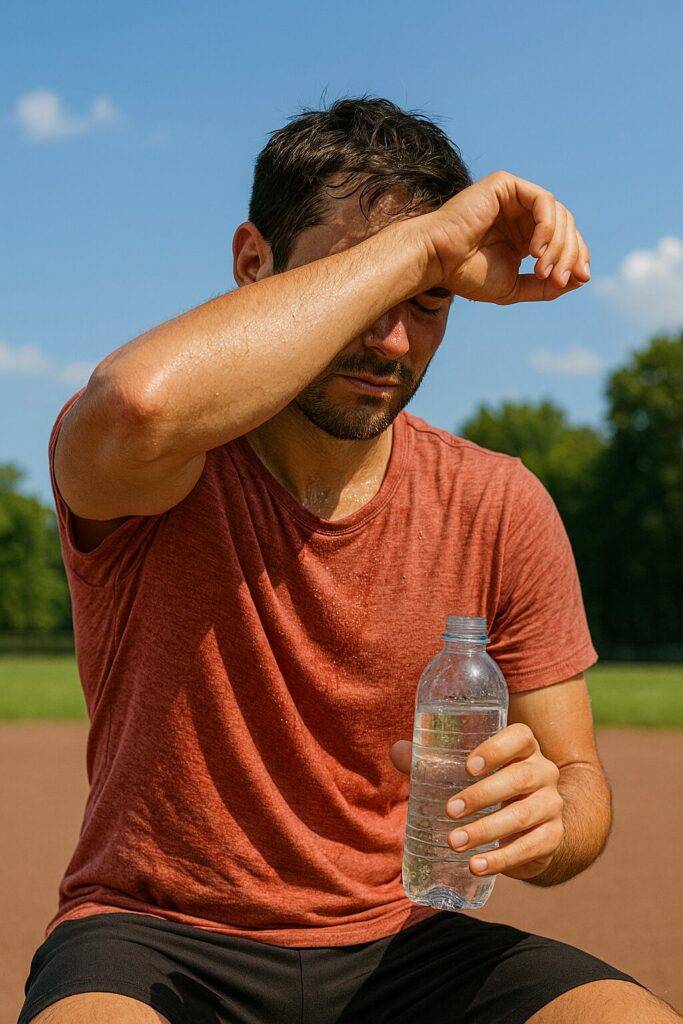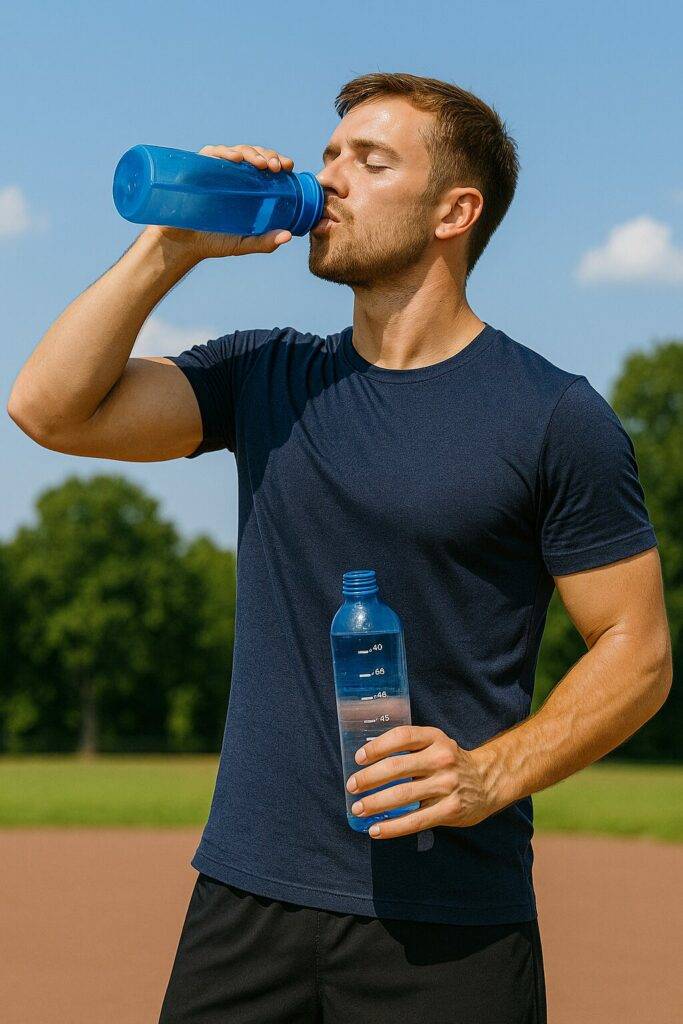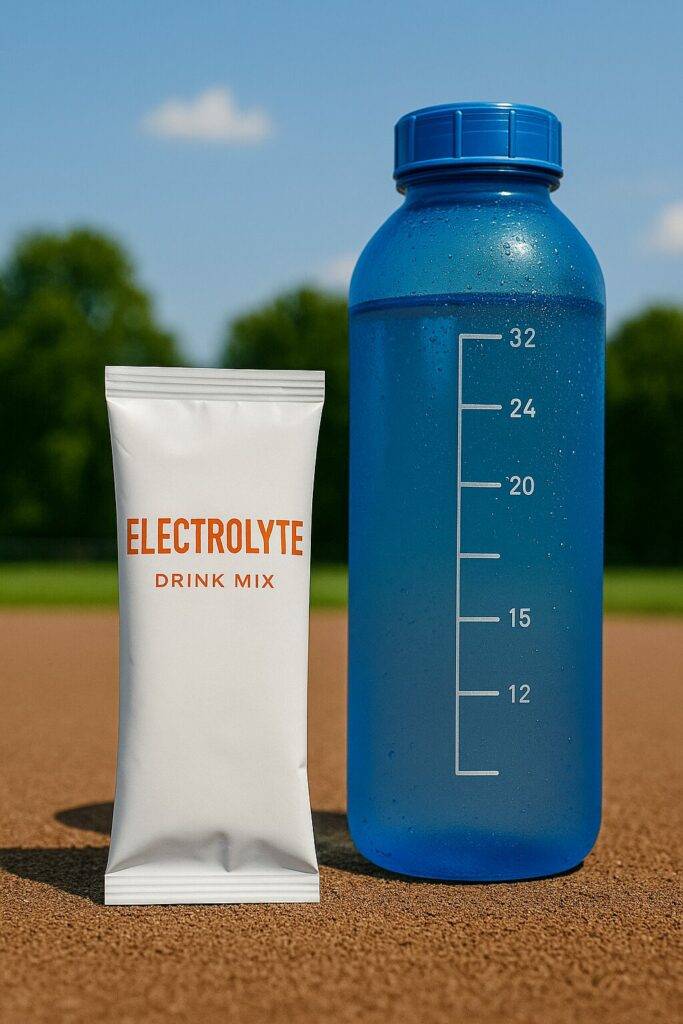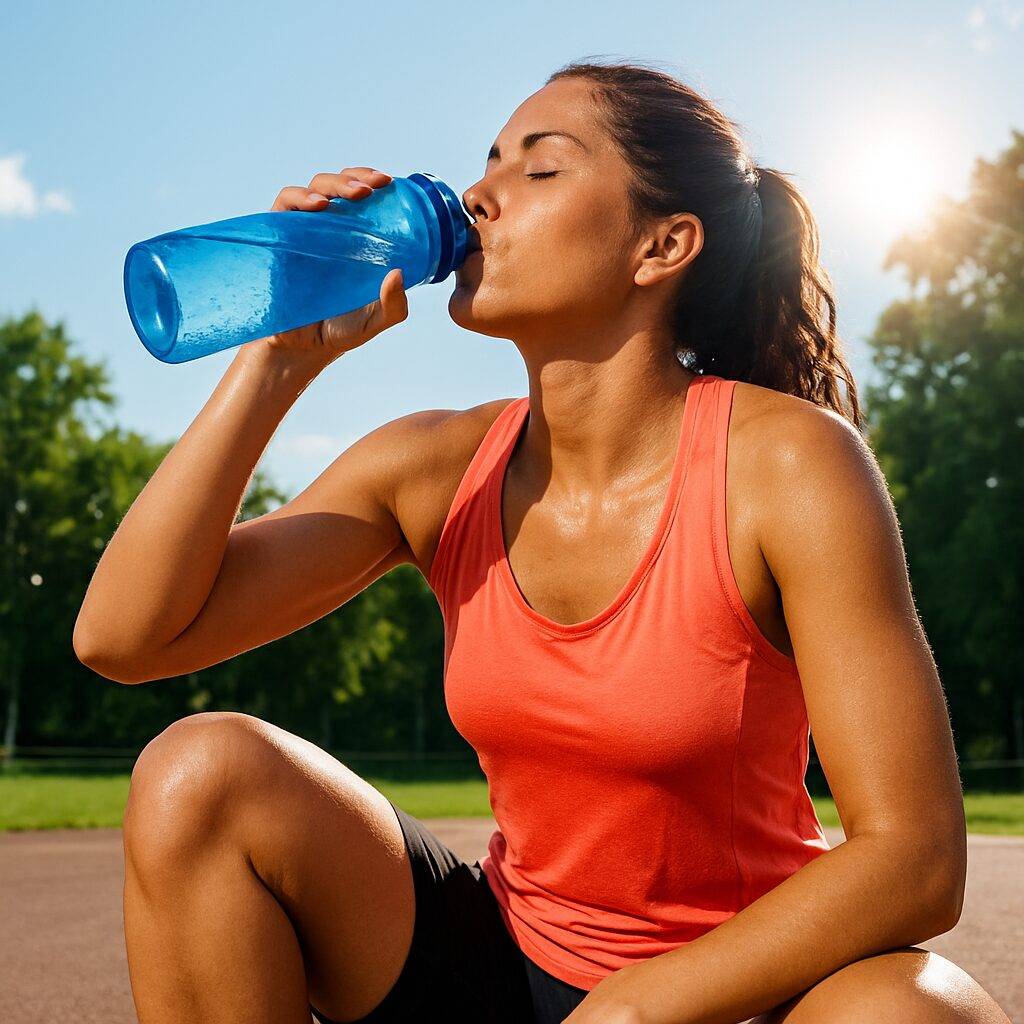Hydration during summer workouts is essential for maintaining peak performance, avoiding injury, and feeling your best. When you’re training in the heat, your body loses more water and electrolytes through sweat. If you don’t replace them in time, you may experience fatigue, muscle cramps, dizziness, or even heat exhaustion. In this complete guide, you’ll learn how to hydrate properly before, during, and after workouts — whether you’re hitting the gym, jogging outdoors, or doing HIIT in the backyard.
Table of Contents
Toggle1. Why Proper Hydration During Summer Workouts Matters
When your body heats up during exercise, it sweats to cool down. But sweating too much without replenishing fluids can quickly lead to dehydration. Even mild dehydration (just 2% of body weight) can reduce endurance, strength, and coordination. According to the CDC, staying hydrated also helps regulate blood pressure, circulation, and body temperature — all vital during summer training sessions.
2. Signs of Dehydration During Summer Workouts
Don’t rely on thirst alone — it’s often a delayed signal. Look out for these common signs of dehydration during summer workouts:
- Dry mouth or sticky saliva
- Dizziness or lightheadedness
- Fatigue, sluggishness, or heavy limbs
- Muscle cramps
- Dark yellow urine or infrequent urination

If you experience any of these symptoms, pause your workout, get into a shaded or cool area, and drink fluids with added electrolytes.
3. How Much Water Should You Drink to Stay Hydrated in Summer?
Hydration isn’t a one-size-fits-all approach. However, the following guideline works for most people training in hot weather:
- After: Drink 16–24 oz (500–700 ml) for every pound (0.45 kg) of sweat lost
- Before: Drink 16–20 oz (500–600 ml) 2 hours before your session
- During: Sip 4–8 oz (120–250 ml) every 15–20 minutes

You can weigh yourself before and after your workout to estimate fluid loss. Keep in mind, workouts over 60 minutes or under direct sun may require electrolyte replacement, too.
4. Do You Need Electrolytes During Summer Workouts?
Yes. In summer, water alone may not be enough — especially during prolonged workouts. Sweat contains sodium, potassium, magnesium, and chloride, which are critical for muscle function and fluid balance. Without them, even if you drink enough water, you can still experience fatigue and cramps.
Look for hydration supplements with clean ingredients, low sugar, and proper electrolyte ratios. Avoid options with artificial dyes or excess sweeteners.

👉 Check out our Hydration Boosters or learn more in this Healthline guide to electrolyte powders.
5. What to Avoid When Exercising to Stay Hydrated in Summer
- Wearing heavy or dark clothing – Use breathable, light-colored gear
- Midday sun – Train early in the morning or after 6 PM
- Skipping hydration breaks – Set reminders if needed
- Overloading on caffeine or pre-workouts – They can increase dehydration
Listening to your body is key. If you feel off, rest and rehydrate. Summer workouts can be productive, but they must be safe.
6. Best Tools to Stay Hydrated During Summer Workouts
Make hydration convenient and consistent with these tools:
- Reusable bottles with time markers – Help you track intake all day
- Electrolyte powders or tablets – Easy to add to water before or after training
- Hydration backpacks – Great for runners and cyclists
- Magnesium + Potassium capsules – Fast-acting, no flavor needed
For a curated list, explore our Hydration Boosters collection.
7. How Climate and Humidity Impact Hydration During Summer Workouts
Not all summer conditions are equal. High humidity prevents sweat from evaporating efficiently, making it harder for your body to cool down. Meanwhile, dry heat causes sweat to evaporate so quickly you may not even notice how much you’re losing. Both scenarios demand more attention to fluid intake and electrolyte replenishment. Adjust your water intake according to how much you’re sweating, not just the temperature outside.
8. Fueling with Food: Hydration-Friendly Foods for Summer Training
Did you know that 20–30% of your daily fluid intake comes from food? Water-rich fruits and vegetables are great additions to your summer meal plan. Try including:
- Watermelon
- Cucumbers
- Strawberries
- Celery
- Oranges
These foods support hydration naturally and provide essential vitamins, antioxidants, and fiber to keep your body energized and ready to move.
9. What About Children or Older Adults Exercising in the Heat?
Children and seniors are more vulnerable to dehydration, especially in summer. Kids may forget to drink water when playing outdoors, while older adults may have a reduced sense of thirst. If you’re caring for others, make sure they have water available at all times and are reminded to sip regularly. Look for signs like flushed skin, fatigue, or irritability, and offer fluids with a balance of electrolytes when needed.
10. Final Tips for Hydration During Summer Workouts
- ✅ Start your day with water before coffee or food
- ✅ Add natural flavor to water (lemon, mint, berries)
- ✅ Alternate water and electrolyte drinks during intense days
- ✅ Track your intake with apps or a hydration journal
- ✅ Be proactive, not reactive
Good hydration is a full-day habit — not just something you do at the gym.
11. Final Thoughts on Hydration During Summer Workouts
Hydration during summer workouts is more than just a tip — it’s a necessity. Whether you’re walking, lifting, or running, fluids and electrolytes keep your body safe and your performance sharp. By planning ahead, listening to your body, and using the right hydration tools, you’ll feel stronger, last longer, and recover better. Remember, it’s not just about how much you sweat — it’s about how well you replenish. Summer should be about progress, not burnout.
12. Ready to Hydrate Smarter This Summer?
Browse our favorite hydration boosters, powders, and tools—curated for hot-weather performance.
13. Frequently Asked Questions About Summer Workout Hydration
Q: Do I need to drink more water in summer even if I’m not thirsty?
Yes. Thirst is a delayed response. Drink consistently to stay ahead of dehydration.
Q: Should I take electrolytes after every workout?
Only if you’re sweating heavily or training over 45–60 minutes. Otherwise, water and a balanced meal may be enough.
Q: Can I use regular salt instead of electrolyte powders?
Salt provides sodium, but not potassium or magnesium. It’s better to use a complete electrolyte blend for optimal results.
Q: What’s the best time of day to work out in summer?
Early morning (before 9AM) or late evening (after 6PM) when temperatures are cooler and UV exposure is lower.
Q: How can I tell if my hydration habits are working?
Monitor your energy levels, urine color, and post-workout recovery. Consistent clear or light-yellow urine, steady energy, and reduced cramps are good signs.
Disclosure: As an Amazon Associate, HealthFitHub earns from qualifying purchases.

